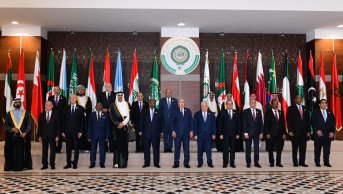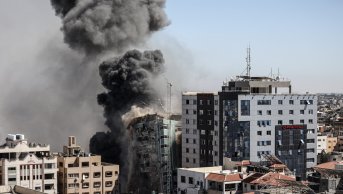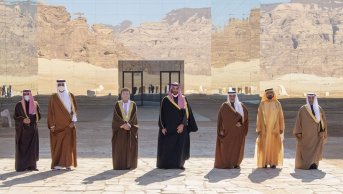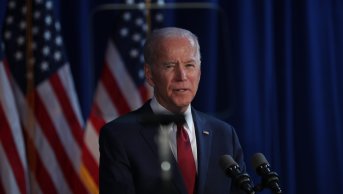Bouteflika’s Withdrawal Decision and Possible Scenarios
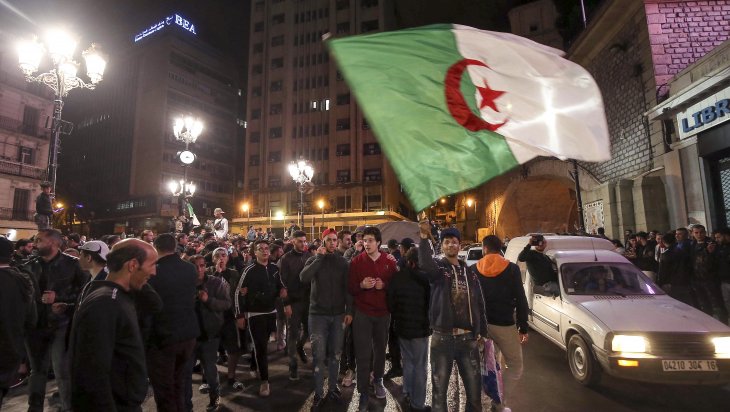
Voluntarily joining the Ottoman Empire under the leadership of Barbaros Kheireddin Pasha and Oruc Reis, Algeria became one of the most important bases in the Western Mediterranean and North Africa during the Ottoman period. In this process, Algeria was autonomous and strong enough to sign an agreement with the US president. The Algerian province had a significant share in agriculture and maritime trade at that time. Being the first Arab land colonized by Westerners in 1830 as a result of these advantages, Algeria lost one and a half million troops in the greatest resistance against France during the Algerian War of Independence.
Although Algeria pursued an independent foreign policy after gaining its independence in 1962, France managed to regain its influence in the country in the 1980s. After the political chaos and military coup that emerged in the first attempt of the Arab Spring, the country was dragged into a serious civil war at the end of 1991. The political, economic and humanitarian costs of the civil war, in which 200 thousand people died, were dramatic. Abdelaziz Bouteflika came to power through the consideration of a civilian-soldier balance to find a solution to the chaos experienced in this period called the “dark decade.” Bouteflika favored the country in the 2000s by taking steps to ensure social peace and stability. However, in the last 10 years, Algeria has made almost no progress, and it has not been very effective internationally.
Algeria was not affected very much by the movement that emerged in the wake of the Arab Spring breaking out in late 2010 because the great price paid in the civil war in the 1990s was still etched in memories. In addition, despite having problems such as poverty and unemployment as in other countries, Algeria, an oil- and gas-rich country, was able to limit the reactions of the public thanks to the support it gave to its people. Meanwhile, President Bouteflika promised political and economic reforms, but did not (could not) fulfill these promises. Bouteflika’s old age and the disease he suffers from, on the one hand, and the governments, which did not want to take responsibility in domestic politics on the other, brought about incompetence to solve the problems that had accumulated in the country. However, Bouteflika was (forcibly) re-elected in the 2014 elections, not much different than today.
Bouteflika and his government, which were hardly visible during their last term, proved ineffective in many domestic and foreign policies. For example, although the instability of Libya affected it as well, the administration did not play an active role in the solution of the problem. As the low oil and gas prices have influenced the country’s budget and economy in a negative manner, poverty and unemployment have reached higher levels in recent years. Increasing pessimism in Algeria, where one-third of the population is less than 30 years old and which stretches over a wide geography, has increased the demand for a new and more responsible president instead of the current one that is not that much to be seen. Amidst increasing social reaction and mobilization, Bouteflika’s desire to become president for the fifth term turned into protests.
Relying on the fact that the Arab Spring in 2011 slightly affected the country, the regime forces are seen to be caught unprepared for these protests but they still also wanted to maintain their privileges. It seems that the regime forces had difficulties in developing policies after the protests and either did not have an idea for a new solution or an opening or did not want to change at all. This is because when the demonstrations reached a serious level, Bouteflika made it known through his representative that he would be a candidate for the fifth term but, if he was elected, he would serve for one year and change the political system. However, these statements did not put a halt to the public reactions, because the public does not see a possibility of change in the old system.
The reason why the current maintainers of the status quo, which emerged 15-20 years ago, insisted on making Bouteflika a candidate is because he did not meet the needs of the emerging middle class and business sector. It may even be argued that the elite groups could not compromise among themselves. With the large masses of people, who took their part in the field through protests, as well as with the given change, the Algerian political order could neither find the balance within itself nor make an opening to appease the desires of the people. The old, closed system of Algeria taking shape around France does not coincide with the change the former experienced at the global and regional levels in this process (such as the Arab Spring and the increase of relations with China, the US, and Turkey).
Some demonstrators called on people to take civil disobedience actions in the country and on the public servants to take their responsibilities and do their duties. In the same period, the government, which was quite afraid of demonstrations at universities, closed schools for a month. Likewise, to drive the government into a corner, around a thousand judges announced that, if Bouteflika joined, they would refuse to oversee the elections.
In a statement made on March 11 on behalf of Bouteflika, it was stated that he would not be a candidate for a fifth term, the elections were postponed, and a technocrat government would be formed after the resignation of Prime Minister Ouyahia. It was also stated that Bouteflika, who appointed former Interior Minister Noureddine Bedoui as the prime minister, would continue with his own team and remain in power until the elections and an independent election board would be established. In practice, however, this does not seem very different from the previous statement, which asked for one more year. In fact, this process may also take six months to a year; without constitutional legitimacy. The upcoming process and the future of Algeria will be determined by the young demonstrators, their insistence in the public squares and their interaction with the regime.
It is not easy to find a civilian president, who would be approved on the one hand by France, which is very influential in Algeria along with the army, and by the Algerian people on the other hand. If they had found such a name, they would not have had much trouble in making him be chosen. The strength and effectiveness of the demonstrations in the coming days will reveal whether the public will go along with this planned transition. Some jurists argue that Bouteflika’s decision to postpone the elections rather than just to withdraw is unconstitutional and that the presidency will already expire in April and thus, the appointments he will make will not be legitimate.
Even though the demonstrations in Algeria have shaken the system, it is obvious that the demonstrations or street opposition do not have a specific leader. Since the opposition parties in the country are engaged or digested by the system, there exists a serious problem of trust between them and the demonstrators. Although the public is not expected to react calmly to these developments, the regime will continue to impose its own agenda if Algeria is kept tranquil and the speed and volume of the demonstrations is reduced. This situation may pave the way for a more chaotic period in the country.
Although it is not at the top of the world agenda, developments in Algeria are important at local and regional levels. Indeed, the country, with a very large geographical area, has considerable natural resources including gold and uranium as well as oil and natural gas. Since these features of the country attract the attention of many foreign lobbies and investors, there is serious resistance to democratization and independence. The true democratization of Algeria will also affect the region. Algeria’s clear attitude towards the occupation administration in the Palestinian issue will be significant for the peace and stability of North Africa and the Western Mediterranean. Furthermore, a more democratic government will be in a position to overcome the conflicts with neighboring Morocco. Although it is natural for everyone to show interest in the democratization of such an important country, the interaction between the settled forces and the demonstrators will determine the future of democracy in the country.
This article was published on March 12, 2019, with the title “Buteflika'nın Çekilme Kararı ve Muhtemel Senaryolar” (Bouteflika’s Withdrawal Decision and Possible Scenarios) in the Anadolu Agency News Analysis section.

